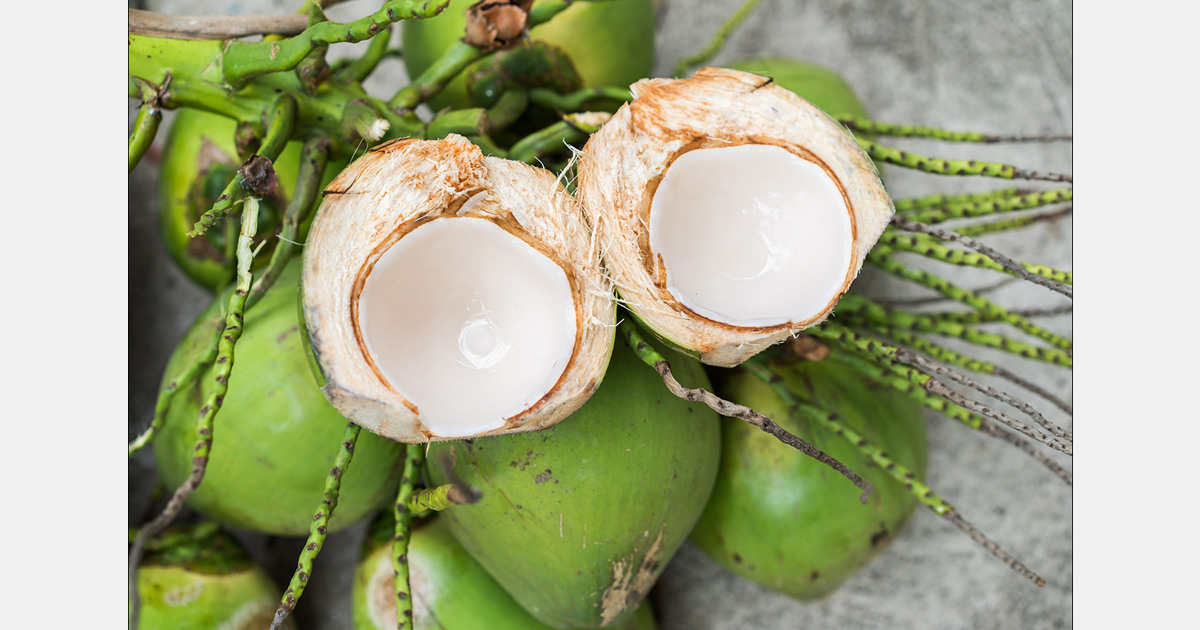
Thailand’s aromatic coconut sector is experiencing a market downturn as prices have dropped to less than half of production costs, resulting in major financial losses for growers. According to industry sources, the rapid rise of Vietnam’s coconut exports to China has reshaped regional trade flows, pushing Thai farmers into a difficult position.
Prices below production costs
As of October 21, 2025, the farm-gate price for aromatic coconuts in Songkhla province was between 2 and 3 baht (US$0.05–0.08) per fruit, compared to average production costs of 4–5 baht (US$0.11–0.14) per fruit. In some areas, buyers have refused to purchase fruit, leaving coconuts unharvested. With national production estimated at 500 million fruits per year, every 1 baht (US$0.03) drop in price represents a loss of about 500 million baht (US$13.5 million) for the sector.
Tattawin Saruno, an independent academic and agricultural management specialist, described the current situation as severe. He noted that inconsistent quality and reduced market access have worsened the challenges for small-scale growers.
Vietnam’s export protocol with China reshapes trade
The main driver of the price collapse is Vietnam’s formal entry into the Chinese market after signing an export protocol with China in 2024. The agreement allowed Vietnam to ship fresh coconuts directly to China, previously Thailand’s main export destination.
“The Chinese market, which has very high demand and was previously Thailand’s main buyer, has rapidly shifted its imports toward Vietnam,” Tattawin said.
Vietnam’s competitive position is supported by lower freight costs due to geographic proximity, large-scale cultivation, and coordinated government export policies. Vietnamese media reported that exports of both fresh and processed coconuts to China increased by several hundred percent in 2025.
Losses across Thailand’s coconut belt
With an estimated annual production value in the tens of billions of baht, the current market decline is creating economic strain across Thailand’s coconut-growing provinces. Local producers have called for measures to stabilise prices and restore competitiveness as the Chinese market continues to absorb higher Vietnamese volumes.
Industry observers note that Vietnam’s rapid market access has accelerated a structural shift in the Asian coconut trade, leaving Thailand’s aromatic coconut industry facing an uncertain outlook.
Source: The Nation
